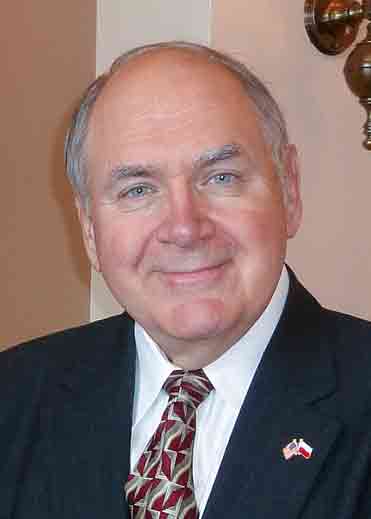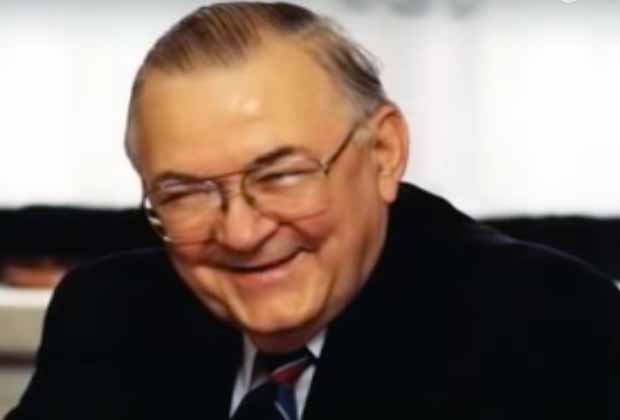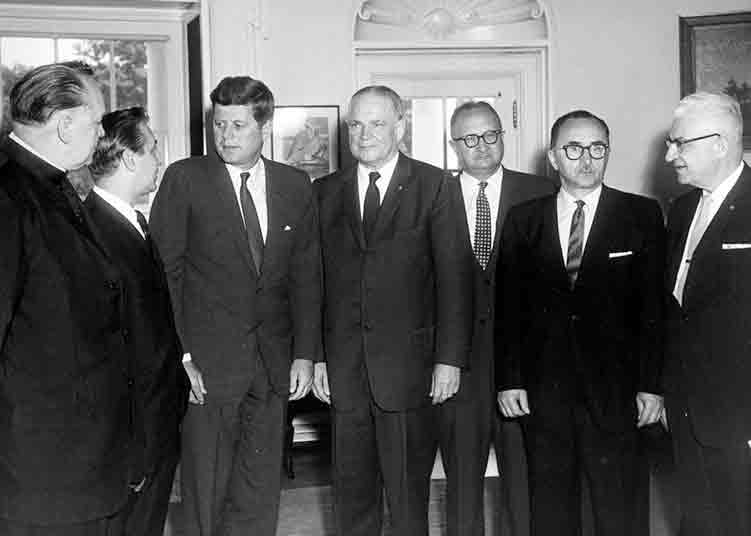Aloysius A. Mazewski was born on January 5, 1916 in North Chicago, Illinois, the son of immigrants. Active in Polish community activities as a student in the 1930s, he graduated with a law degree from DePaul University and volunteered for military duty in World War II. Working in intelligence and, later, as a hospital administrator, he completed his military service in 1946 with the rank of major.
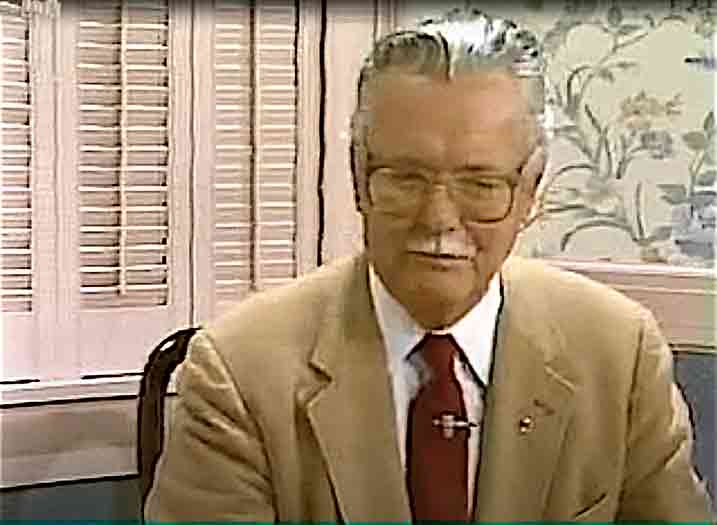
President Aloysius Mazewski on Sig's Celebrity Kitchen show (Source: YouTube, fair use)
Three related activities defined Mazewski’s career: his building of a highly successful law practice, his engaging in Republican party politics, and his involvement in the Polish National Alliance fraternal. A PNA national director in 1947 at age 31, Mazewski was elected President of the Alliance over Charles Rozmarek in September 1967 at the 35th national PNA convention in Detroit. Long involved in the Polish American Congress, he was elected PAC president in 1968. He served as president for 20 years — until his death on August 3, 1988.
President Mazewski’s leadership of the Polish American Congress came at a difficult time. America’s attention had drifted from a Cold War focus that included support for Poland’s liberation, to a fixation on the endless Vietnam War. In Poland, a new leader, Edward Gierek, was busy with calling on the Polish community abroad to set aside its historic opposition to the communist regime. Here, Mazewski, working closely with dedicated PAC activists, many of them from the post-World War II emigration, stoutly defended the PAC mission in keeping true to its goal of a free, independent, non-communist Poland.
Early in the 1970s, he created the PAC Charitable Foundation. In the 1980s the Foundation would ship $200 million in needed medical supplies and other essential goods to a Poland reeling from oppressive martial law — all in cooperation with the Church in Poland.
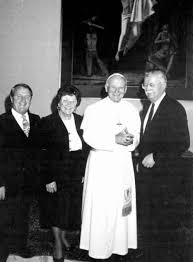
Mazewski's meeting with the Pope John Paul II (Source: wpna.fm)
In August 1980 Mazewski and the PAC took the lead in fully supporting the cause of the Gdansk shipyard workers who were trying to create the Solidarity union. In May 1981, he traveled to Warsaw as a member of the official U.S. delegation that attended the funeral of Cardinal Wyszynski. There he met with Lech Walesa, the leader of the Solidarity union.

Mazewski's meeting with Lech Wałęsa in 1981 (Source: Wikipedia)
Following the regime’s action to crush Solidarity in December 1981, Mazewski and the top PAC leaders met with President Reagan and Vice President Bush in the White House. There they issued a joint statement condemning martial law. In 1984, on the 40th anniversary of the Warsaw Uprising, Mazewski and the PAC leadership were again at the White House where President Reagan signed a bill establishing the Solidarity-supporting National Endowment for Democracy. At the same time the President issued an executive order creating an annual month-long celebration of the Polish heritage. In 1985, Mazewski led the Polish community protest of the visit of communist regime leaders to New York for the 40th anniversary of the founding of the United Nations. The powerful statement he authorized that denounced the regime appeared in the New York Times. It included the names of the entire national PAC leadership.
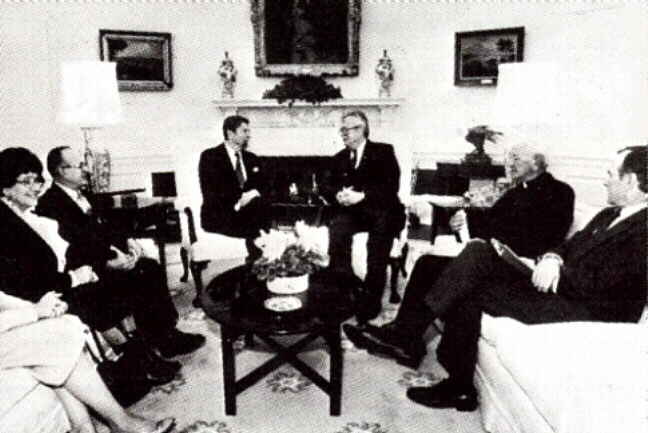
President Ronald Reagan meets with the Polish American Congress leaders in the White House to discuss the developments in Poland (1981) (Source: pac1944.org)
Mazewski’s connections with a series of U.S. Presidents, from Nixon and Ford, to Reagan and Vice President Bush, along with his ties to leaders from both parties in the U.S. Senate and House of Representatives, were extraordinary. Indeed, in September 1980 President Jimmy Carter came to Chicago to address a banquet of three thousand that gathered to celebrate the 100th anniversary of Mazewski’s Polish National Alliance. In his speech he paid special tribute to Mazewski and echoed the PAC in giving his support to Solidarity.
Aloysius Mazewski died suddenly while on a short vacation in August 1988. His passing came just one year before Poland’s freedom would be proclaimed under a new Solidarity-led government headed by Prime Minister Tadeusz Mazowiecki.
For more on Aloysius Mazewski, check out Dr. Pienkos’ histories of the Polish National Alliance (1984, 2008) and the PAC (1991) and the many entries in James Pula, ed., The Polish American Encyclopedia (2011).



